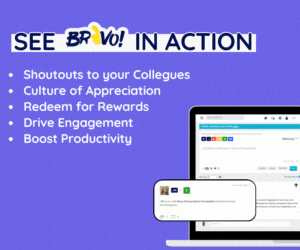
Factors for demotivating employees are increasing these days. Some organizations know them very well, but the majority of organizations need to understand them.
So, learning these factors is essential for having a motivated workforce.
What are the three factors of Demotivating Employees?
The three factors that can contribute to the motivation of your employees are impartiality, word recognition, and meaningful work:
Impartiality: When a workplace is based on the values of fairness and equity,
it gives rise to employee dedication and loyalty. Subsequently, the company thrives.
Work Recognition: Employee recognition is a powerful factor in motivating employees.
When employees’ hard work gets due credit and acknowledgment, it makes them work to work more of their organizations.
Recognition, at the least, makes employees work with the same level of dedication that earned them recognition for their contributions in the first place.
Meaningful work: When employees learn that their work holds value for their company and it contributes to its success, along with helping it achieve its organizational goals, it motivates them to get and stay on the course of good work.
What are the demotivating factors for employees?
As mentioned above, there are always some demotivating factors that lead an organization to have demotivated employees:
Workload without respective priorities

There are several factors leading to demotivation, but one of the significant demotivation factors is assigning employees several tasks without their priority mentioned.
It makes them buried with a list of assignments without the knowledge of which one of them shall be completed first.
When employees are surrounded by a workload that has no priority specified, it makes them least motivated to complete any of them. Not only this, but it also makes them burned out.
Besides assigning employees an extensive list of to-dos with no priority order, what is further demotivating employees of today is the assignment of such tasks that are beyond their skill and capability.
A company may expect its employees to accomplish a chore that is not within their skillset. As a consequence, the employees are compelled to spend a significant part of their work hours on an impossible feat since it is past their existing skills.
Spending a considerable amount of their time on something that cannot be achieved takes away an employee’s motivation for such work that is well within their expertise and, therefore, achievable.
Lack of work-life balance
Many companies today are, unknowingly, demotivating employees by depriving them of a balanced private and professional life.
As a result, a lack of work-life balance occurs.
In other words, companies, in order to make their employees more productive and engaging, introduce such a working culture that makes it difficult for their workforce to keep their professional and non-professional lives balanced.
A company culture that deprives employees of a healthy balance between professional and private lives only makes them less productive and less efficient, which results when employees reach a level of exhaustion due to a constant workload.
It also leads to reducing the employee motivation for completing routine-based tasks, let alone giving an adobe and beyond performance.
Work at the disinterested roles
One of the biggest factors today that are demotivating employees is working in such positions the employees are dispassionate about.
On the contrary, working at the desired positions (the ones employees have passion for) makes the employees motivated.
When employees are working at positions they have little to no passion for, they naturally become demotivated. As a result, their productivity and performance remain unsatisfactory and below average.
Additionally, employees’ performance does not exceed the company’s expectations by working in dispassionate roles.
Moreover, when employees work in their favorite job positions, they may not even be required to be extrinsically motivated since they have the intrinsic motivation to take on the role.
To conclude, for a company to not have its employees demotivated, it is important that most employees work at their desired positions/ roles.
Read More: A Comprehensive Guide To Employee Motivation
Lack of flexible work hours

Today, organizations and their employees are more familiar with the terms ‘remote work’ and ‘work-from-home’ than ever. And it is the COVID-19 pandemic that made working remotely a new normal.
Nevertheless, it is not the remote work that excites the employees. Instead, the flexibility that comes with remote working is what interests them.
Therefore, when an organization does not provide its employees with flexibility in their work (in one form or the other), it unknowingly demotivates its employees.
The lack of flexible work hours causes demotivation because employees have little to no time to freshen their minds and replenish their depleted energies within the standard eight-hour working window.
So, understandably, employees get demotivated and burned out.
On the other hand, companies offering flexible work hours enable their employees to have a rather long work window (a complete day, to be precise).
So, within it, the employees are able to enjoy their personal lives besides performing their professional duties, resulting in a better employee work-life balance and motivation to work.
Conclusion: Why do some employees become unmotivated?
It is normal for employees to become demotivated during their work tenure at a company.
However, a company should at least ensure that this demotivation is not the result of any of its policies or a culture apparently intended to maximize employee performance, which makes employees less productive and proves counterproductive.
The leading factors that demotivate employees in the contemporary business world are:
- The absence of work-life balance and flexible work hours
- Working in dispassionate roles
- Assigning work beyond employee expertise
- A workload without any respective priorities
Lastly and relevantly, you can always use employee rewards and recognition platforms that help drive employee motivation.
You can book a free demo of Bravo to understand how it can help with employee motivation.







